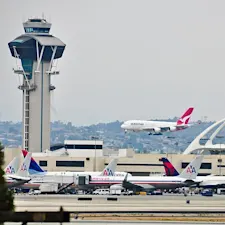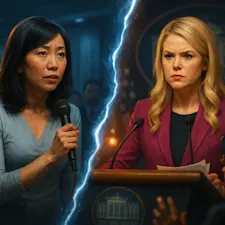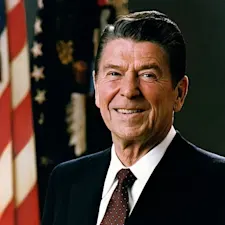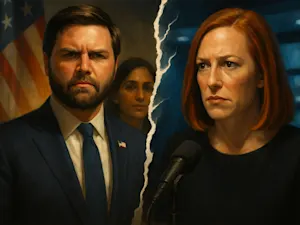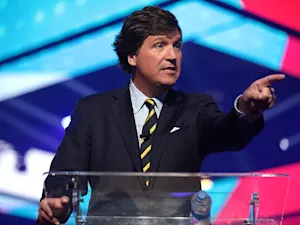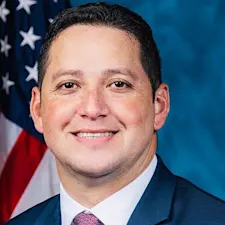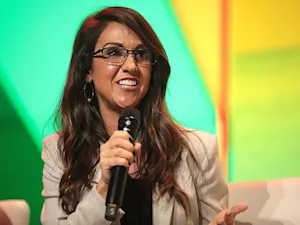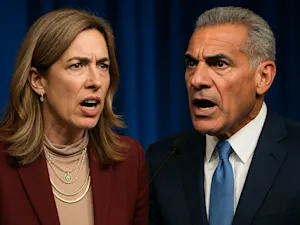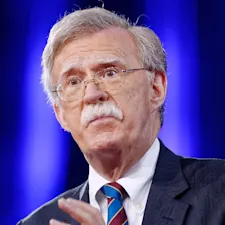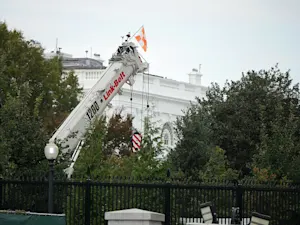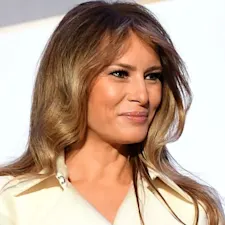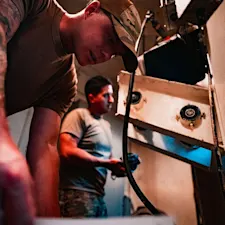
Musk's 'Robot Army' Pitch Hides a Bigger Power Play
Elon Musk is making a bold pitch to Tesla shareholders: approve his $1 trillion pay package, and you're not just rewarding a CEO — you're backing the man who wants to command a "robot army." This isn't your typical executive compensation plan. Musk ties his massive potential payday to ambitious targets like an $8.5 trillion company valuation and the delivery of 1 million humanoid robots, known as Optimus. But more than money, Musk says he needs "strong influence" over the future his company is building, a future where autonomous machines could reshape industries and society.
Musk's Robot Army and the $1 Trillion Bet
Tesla's board proposed the unprecedented pay deal earlier this year, designed to keep Musk at the helm as the company pushes toward what it calls "the most valuable company in history," as reported by Fox Business. The package would reportedly grant Musk up to 12% of Tesla's stock if the company hits a market cap of $8.5 trillion and meets other operational milestones over the next decade. Currently, Tesla's market value sits around $1.38 trillion, and Musk owns about 13% of the company's shares.
But the deal is about more than just stock and cash. Musk interrupted Tesla's earnings call to explain why he needs enough voting control to maintain "a strong influence" over Tesla's direction, especially as the company develops its Optimus humanoid robots. "If we build this robot army, do I have at least a strong influence over this robot army? Not control, but a strong influence," Musk said, adding that he doesn't want to be ousted after building such a transformative force, as reported by WIRED. He clarified that he wants enough voting power to steer Tesla's future but not so much that he can't be fired — if he goes crazy.
Musk's vision for Optimus is grand. He has described the robots as a way to free humanity from drudgery, imagining a world where "working will be optional" and where robots could provide "the finest medical care" to everyone, as reported by WIRED. Tesla's CEO even called Optimus "an infinite money glitch," suggesting the robots will be in high demand for their ability to perform work.
The Shareholder Vote Becomes a Referendum on Control
The shareholder meeting scheduled for early November is shaping up to be a high-stakes showdown. Proxy advisory firms Institutional Shareholder Services (ISS) and Glass Lewis have both urged investors to reject Musk's pay package, citing concerns over shareholder value and the structure of the deal. Glass Lewis warned of a "potential decrease in shareholder value" and expressed "significant concern" about the payment terms, as reported by Reuters.
Tesla pushed back, accusing these firms of ignoring the "staggering financial results delivered under Elon's leadership" and elevating "rigid policies over shareholder value," as reported by Reuters. The company framed the opposition as an attempt to override the mandate shareholders gave Musk, emphasizing the CEO's role in delivering ambitious projects.
Musk himself framed the vote as a matter of survival and influence. He expressed discomfort with building a "robot army" only to be ousted due to "asinine recommendations" from proxy firms who "have no freaking clue," as reported by The Daily Beast. He wants enough voting power to steer Tesla's future but not so much that he becomes untouchable, joking that he should be able to be fired he goes "insane."
The Financial Picture Behind the Pitch
Tesla's recent financials add complexity to the vote. Despite a 12% revenue increase to $28.1 billion in the third quarter, profits plunged 37%, largely due to price cuts and increased competition, especially from China, as reported by The Daily Beast. Tesla also faced headwinds from tariffs and changes in clean air credit policies under the current administration.
Musk remains optimistic, however, pushing for rapid expansion and highlighting upcoming projects like driverless taxis and the Optimus robot rollout. He told investors he feels "clarity" and believes it "makes sense to expand production as fast as we can," as reported by The Daily Beast.
The Overlap of Corporate Power and Autonomous Tech
Musk's argument reveals a new dimension of corporate governance where control over emerging technologies like AI and robotics becomes central to leadership. The "robot army" is not just a metaphor for Tesla's humanoid robots but a symbol of the power Musk seeks to wield in shaping the next industrial revolution.
His insistence on "strong influence" over this robot army turns the shareholder vote into a referendum on who commands the future of autonomous technology. It raises questions about how much control a single individual should have over a company that could soon deploy millions of robots with wide-reaching societal impact.
What's at Stake for Shareholders and the Market
If approved, Musk's pay package would be the largest ever awarded to a company executive, dwarfing previous records. The deal's structure allows Musk to earn tens of billions even if he falls short of most targets, thanks to partial achievement rewards and soaring stock prices, as reported by Reuters.
For shareholders, the decision is complex. They must weigh Musk's track record of innovation and Tesla's growth against concerns about excessive compensation and concentrated voting power. Proxy firms argue that the deal's size and terms could harm shareholder value, while Tesla and Musk emphasize the CEO's unique role in driving the company's ambitious vision.
The Vote Looms
As the November shareholder meeting approaches, all eyes are on Tesla's investors. Musk's plea for control over his "robot army" and the future of Tesla's technological empire adds drama to what might otherwise be a routine vote on executive pay.
Whether shareholders cheer Musk's futuristic ambitions, fear the concentration of power in one man's hands, or learn from the unfolding corporate governance battle, the outcome will resonate far beyond Tesla's boardroom. It will signal how much influence a CEO can claim in an era where technology and corporate power increasingly intertwine.
The vote is not just about money. It's about who will command the next wave of innovation — and whether that power should rest with Elon Musk.
References: Tesla's Musk says $1 trillion pay deal about voting control, not money | Proxy firm Glass Lewis joins ISS in urging vote against Musk's $1 trillion pay package | Elon Musk Wants 'Strong Influence' Over the 'Robot Army' He's Building | Desperate Elon Musk Tells Plummeting Tesla to Fire Him if He Goes 'Insane'


